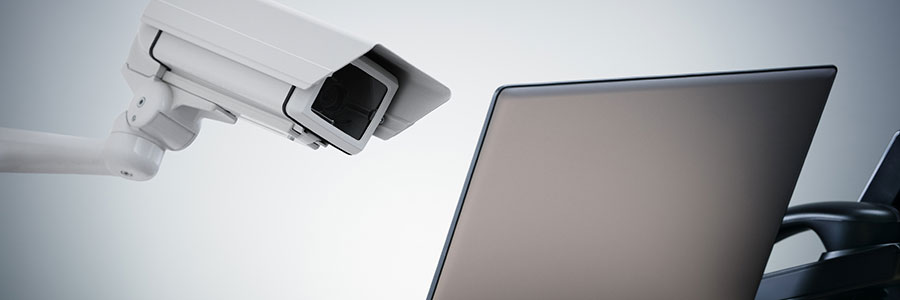One of the biggest threats that can affect your company is Voice over Internet Protocol (VoIP) eavesdropping. This occurs when someone uses a software program to record or listen in on your VoIP calls without your permission. This can be done for malicious reasons, such as stealing trade secrets or committing fraud.
VoIP eavesdropping: How your SMB can prevent it
Can malware affect your Mac?

Malware creators will target anyone and everyone, including Mac users. So even though Apple computers are less vulnerable than Windows PCs, they are not completely impervious to cyberattacks. Read on to find out the different threats you should protect your Mac against, as well as signs that your computer has been compromised.
Don’t be a victim of VoIP eavesdropping
Myth busted: Macs are NOT immune to viruses

It is common knowledge that Windows computers tend to deal with an assortment of viruses and malware, but many people fail to realize that even Macs face similar threats. As virus creators have become more adept at finding back doors and other vulnerabilities, more and more Macs have also fallen prey to malware.
How to tell if your Mac has a virus

Apple products often come with an air of invincibility, and through the years, they’ve shown resistance to threats in ways Microsoft computers aren’t privy to. This, however, does not mean that Macs aren’t invulnerable.
Viruses that affect Macs
There are four general virus types that hit Apple products, and their effects can range from merely annoying to downright destructive:
Adware
Adware are unwanted programs that bombard users with pop-up advertisements.
Android mobile security threats today

As bring your own device (BYOD) policies become common practice for companies today, business owners must keep in mind the possible cybersecurity implications of connecting more devices to the company network. If your employees are using Android devices, here are the top five security threats they need to be aware of as well as how to steer clear from them.
5 Tips to combat VoIP eavesdropping
MR to be removed from Google search

Google has recently made changes to its personal information policy, including a major one for the healthcare industry. The search giant has begun removing private medical records from its search results, preventing cybercriminals from taking advantage of these resources that were previously available after only a few keystrokes.
Avoid VoIP eavesdropping with these tricks

As of late, eavesdropping has been making the headlines due to the surge in frequency. Making it an ideal time to review how well your Voice-over-Internet-Protocol (VoIP) phone systems are protected. However, this isn’t entirely new to VoIP, Vomit and Peskyspy are just some of the prolific VoIP eavesdropping attacks that have gained infamy since 2007. Spare your business from VoIP eavesdropping with these tips:
Never deploy with default configurations
Everyone wants to get things rolling as quickly as possible, but this often results in VoIP phones being deployed with their default configurations.
WordPress websites under attack
- 1
- 2


